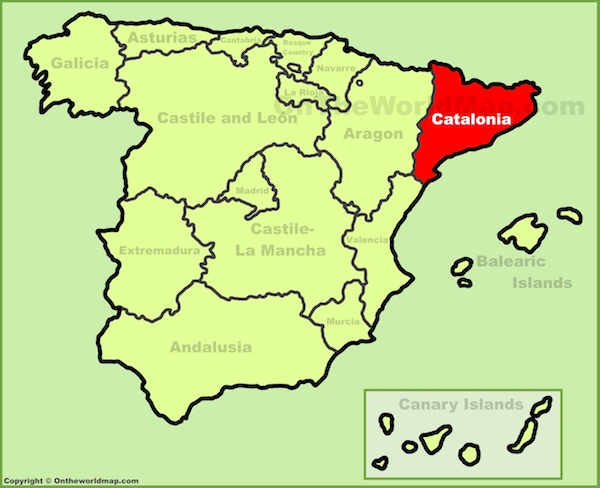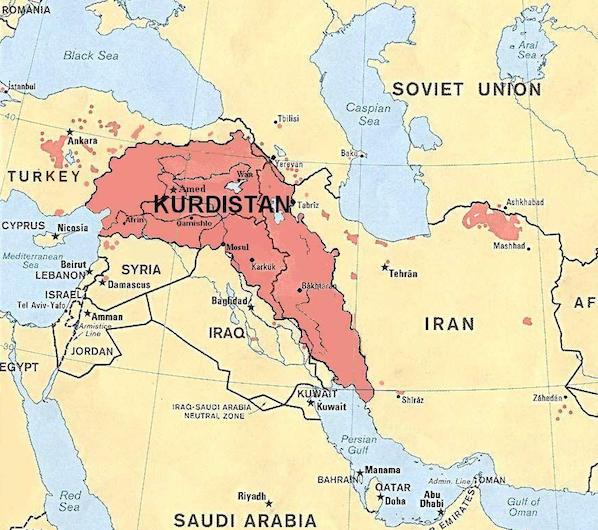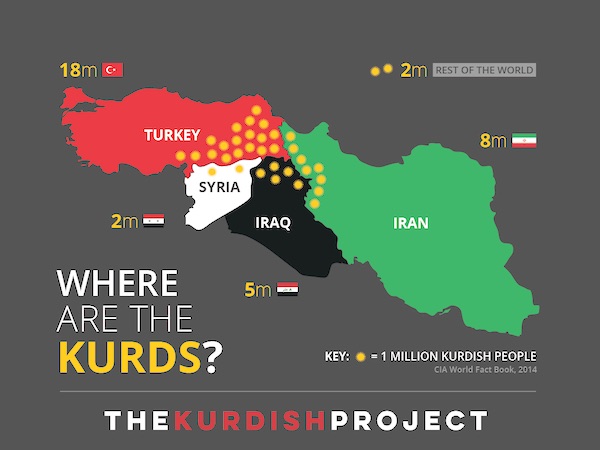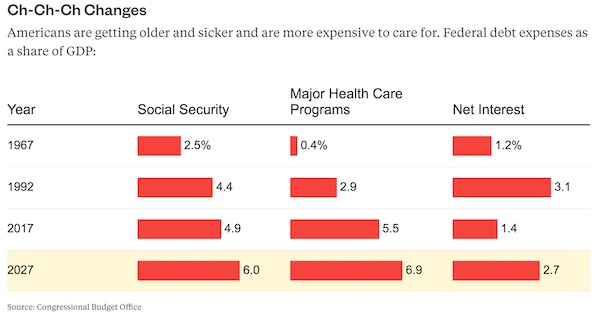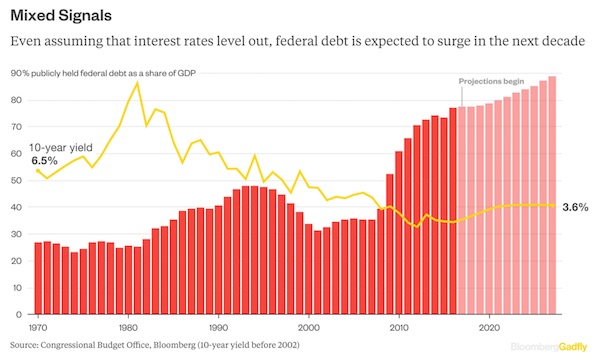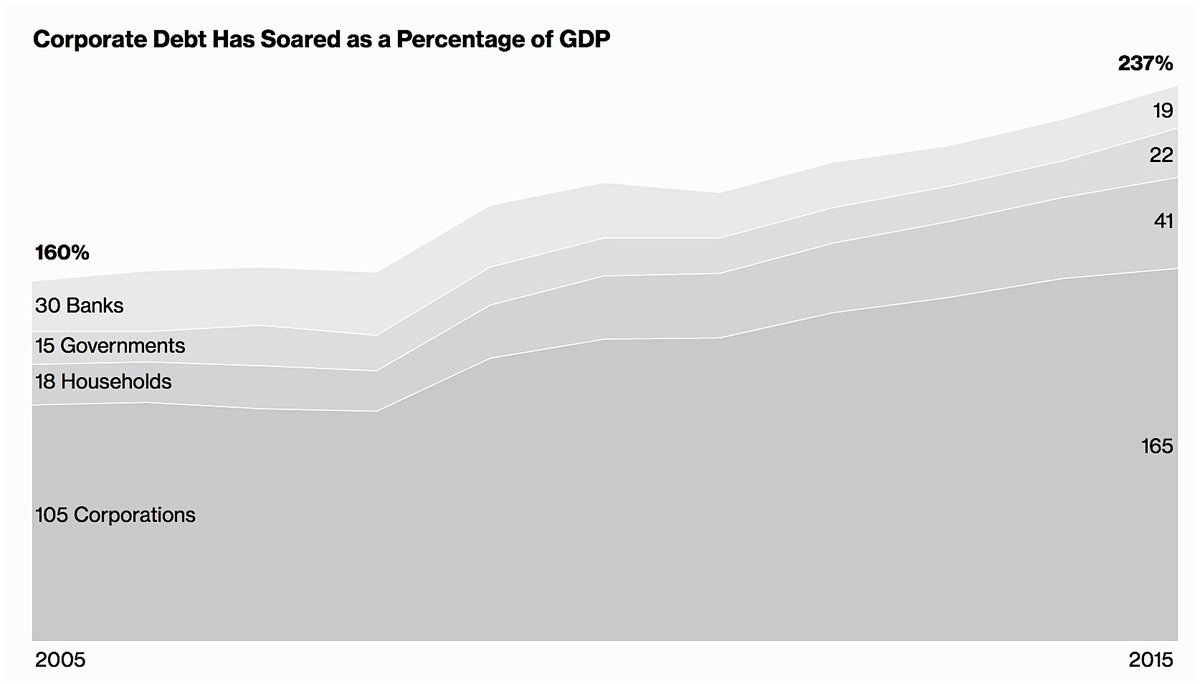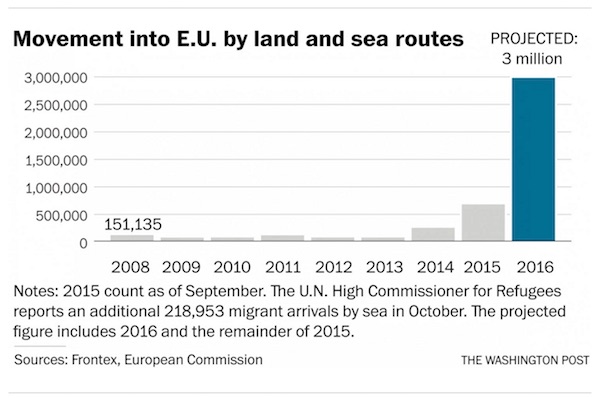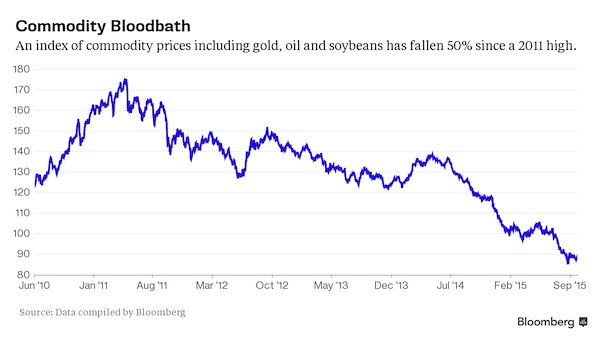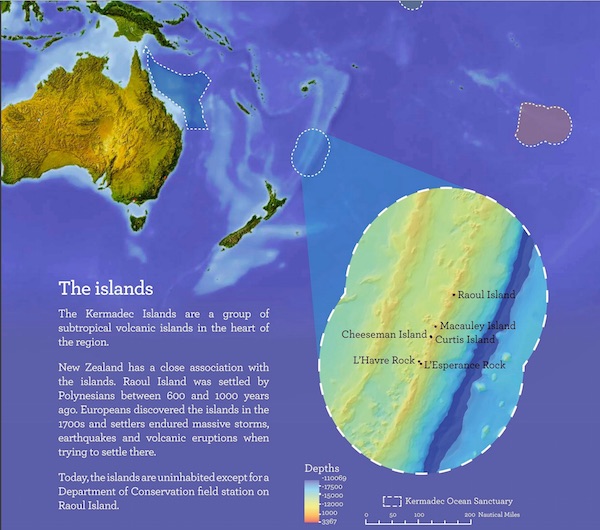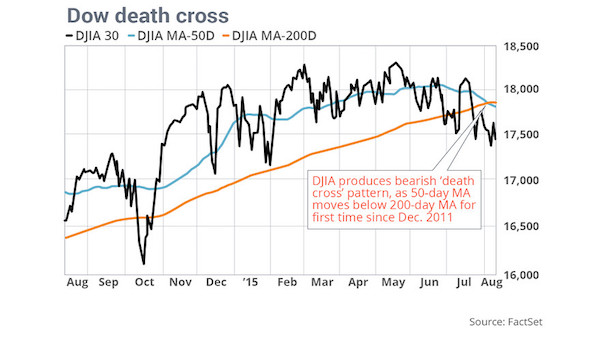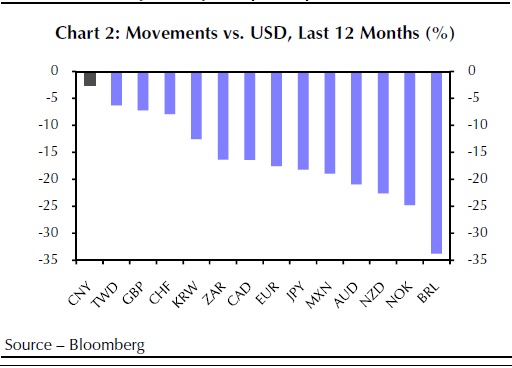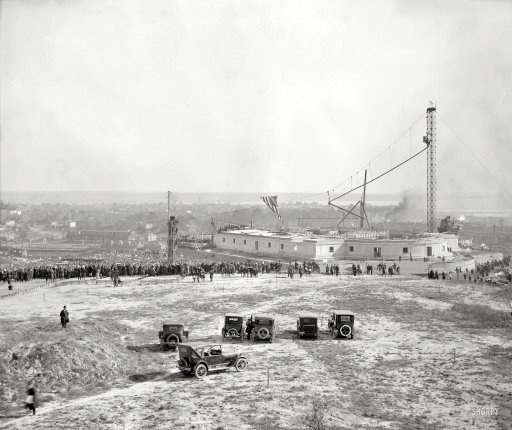
Harris & Ewing Texaco, Washington, DC 1920
What do you think the situation in Scotland would be like if an army acting on behalf of the London government had just killed thousands of Scots in Glasgow and Edinburgh over the past 6 months and destroyed their streets and homes and water and electricity grids, and if moreover that government had seized power after a violent coup and essentially been handpicked by Washington?
If you’re awake a little, one of the first things you would think is wow, those Scots must really have something those guys in London and Washington want, and badly too. And you would be right. Scotland has quite a bit of oil, for one thing. You would obviously also think: this doesn’t feel right.
In the same exact way Ukraine has a lot going for it economically. But it also has the added quality of bordering on Russia, which really has a lot of resources. And ‘our side’ wants them, and has figured that occupying Ukraine would be a great way to get closer to them.
So ‘we’ did when we saw our chance in the Maidan protests. But then there were a few million who won’t co-operate, so we started bombing and shelling them. Not out in the open, we had someone else do it for us. So they would get the blame, or, even better, the other side would. And we threw Russia into the blame game as the main perpetrator. It’s all just about media control, and our own media only. Who reads Russian media? That’s all just propaganda anyway, right?
We can start here: what the US and EU did in Kiev during Maidan (and well before) violates the principle of self-determination, as agreed in the Atlantic Charter, signed by FDR and Churchill in 1941 and subsequently adopted after WWII by the UN. The fact that this kind of meddling is as widespread and common as measles doesn’t change that. Wikipedia:
The right of nations to self-determination, or in short form, the right to self-determination, is a cardinal principle in modern international law (jus cogens), binding, as such, on the United Nations as authoritative interpretation of the Charter’s norms. It states that nations based on respect for the principle of equal rights and fair equality of opportunity have the right to freely choose their sovereignty and international political status with no external compulsion or interference [..]
Especially that last bit seems clear enough. How we define ‘nations’ is less obvious. 1941 being the age of the last great colonial powers, it should be no wonder that the terminology was kept opaque to an extent. Like so:
The principle does not state how the decision is to be made, or what the outcome should be, whether it be independence, federation, protection, some form of autonomy or even full assimilation. Neither does it state what the delimitation between nations should be — or even what constitutes a nation. In fact, there are conflicting definitions and legal criteria for determining which groups may legitimately claim the right to self-determination.
There were two intentions in the day: phrase a principle, a charter, a law that many voices clamored for, but at the same time insert enough loopholes for ‘our’ boys to jump through with impunity.
The Atlantic Charter wasn’t the first attempt. As early as 1918, Woodrow Wilson said:
“National aspirations must be respected; people may now be dominated and governed only by their own consent. Self determination is not a mere phrase; it is an imperative principle of action. . . . “
But that still leaves the term ‘nation’ as part of the definition, without defining the term itself.
In 1960, the UN went further in its Declaration on the Granting of Independence to Colonial Countries and Peoples.
All peoples have the right to self-determination; by virtue of that right they freely determine their political status and freely pursue their economic, social and cultural development.
Now we have ‘peoples’, not just ‘nations’
But you just go ask entire scores of indigenous peoples how over the past 54 years UN member nations have ‘interpreted’ the principles they have signed up to. Not a great story. The reason why lies always in what resources are present on, and underneath, the land these peoples inhabit.
After the right to self-determination had been defined and chartered by the UN, it has been violated and ignored more often than it has been honored. But it’s still there. All we need to do is make sure it’s respected, always.
That means the Scots can have a referendum about independence from the UK. Though the feeling is there that they were granted it only because London thought it would fail, it is there. No such luck for the Catalans, who are simply refused the right to a vote by Madrid. The Basque have that right too, says the UN: ‘All peoples have the right to self-determination’. The Venetians. And countless others. The Cree and so many other First Nations in Canada. The list goes on.
Ukraine separated from the Soviet Union 25-odd years ago, as did many other parts of the failed empire. And now, if they want to, East Ukrainians should have the right to do the same. And present day Russia, i.e. what’s left of the Soviet Union, should have the right to be left alone by the US, EU and NATO, and not have missiles installed right outside its borders, the same way America wouldn’t accept those in Canada or Mexico.
The world needs a bigger and better and meaner definition of the right to self-determination, or just for all nations to adhere to the present one. It needs that because there are a lot of self-determination cases coming up as energy and credit crises will make the world a smaller and poorer place. With much less need or desire for centralized power.
While at the same time the centralized powers will scramble for more resources, not less. Just like once the Romans did.
As ultra cheap energy and ultra cheap credit run out, and they inevitably will, more people(s) will want to become master of their own domain. The UN says they have that right. But if we don’t make sure that right is generally accepted, that’s going to lead to 1001 ugly war theaters.
The world will decentralize. Sure, oil prices are low right now, but we all know oil is not in endless supply, and we also know it’s indispensable to our present economic models. So we’ll have to scale down. But that doesn’t have to be so bad if we prepare for it, starting with defining easy and non-violent ways for people to choose their own government on their own land. It’ll still take plenty adapting, but it doesn’t have to involve shelling and bloodshed.
The same goes for debt and credit. We’re way overstretched, and we’re never going to go back to the growth we once had. But so what, we’re over bloated as we are. The thing is to prevent people from fighting over it.
I know, it’s a tall order. But if saner minds take over than the ones we have in charge today, it can be done for most cases, most countries, most peoples. It’s where we can show we’re not just another spineless species.









• British PM Cameron Begs Scots: Don’t Rip Our ‘UK Family’ Apart (Reuters)
British Prime Minister David Cameron implored Scots on Wednesday to shun independence to keep the United Kingdom “family” intact as he scrambled to stem a steep rise in secessionist support ahead of the Sept. 18 vote. In a sign of panic within the British ruling elite, Cameron and opposition leader Ed Miliband scrapped their weekly question-and-answer session to visit Scotland on Wednesday to ask Scots not to ditch their 307-year union with England. “We do not want this family of nations to be ripped apart,” Cameron, 47, said in an opinion piece published in the Daily Mail newspaper. “The United Kingdom is a precious and special country.” But Cameron tempered the emotion with a clear warning: “If the UK breaks apart, it breaks apart forever.” Cameron has until now been largely absent from the debate after conceding that his privileged background and center-right politics mean he is not the best person to win over Scots, who are usually more left-wing than the English.
But if Scotland votes for independence, Cameron’s job will be on the line ahead of a national election planned for May 2015. Several opinion poll surveys have shown a surge in support for independence over recent weeks, spooking financial markets and raising the biggest internal challenge to the United Kingdom since Irish independence almost a century ago. Cameron, Miliband and Liberal Democrat Leader Nick Clegg will all visit Scotland on Wednesday in what nationalist leader Alex Salmond said was a sign of panic that could backfire. “If I thought they were coming by bus I’d send the bus fare,” Salmond said. The Scottish leader said Cameron was the most unpopular Conservative leader ever among Scots, and Miliband the most distrusted Labour leader.
Read more …

That’s what I’m hoping for.
• Scots Independence Genie Fires Separatist Dreams of EU Statehood (Bloomberg)
A short walk from Edinburgh Castle, past tourist stores hawking kilts and tartan scarves, a church hall is about to become a patch of Barcelona for the day. As Scotland votes next week on whether to break up the U.K. after more than three centuries, a group of about 100 Catalans will gather to watch the outcome unfold and ponder the implications for their own bid for freedom from Spain. “I get goose bumps just thinking about it,” said Raquel Gella, 25, a Catalan marketing manager who has lived in Scotland for five years after arriving as a student. “Who has the chance to see history made in two countries?” The Catalan interest is just the tip of the iceberg. Whether Scots choose to remain in the U.K. or call time on the 307-year-old union with England and Wales, the vote has already proved to separatists from Flanders to Venice that the dream of taking control of their own futures has a chance of becoming reality.
If the political spirits of the 18th and 19th centuries were dedicated to forging larger sovereign states, the referendum has opened up an alternative vision for the 21st century in which smaller national groups dismantle them. That reshaping of the map has ramifications for governments, finances, international relations, companies and investors. The pound dropped to the weakest since November against the dollar yesterday after polls showed the pro-independence campaign in Scotland had wiped out the No camp’s long-standing advantage, leaving the result too close to call. In Spain, bonds fell, with 10-year yields rising the most since May.
“The symbolic value of what is going to happen in Scotland is very important,” said Gerolf Annemans, president of Vlaams Belang, a Flemish party calling for Flanders to secede from Belgium. “Marching toward independence and the reshuffling of the older nation states is a logical evolution, and Scotland, Catalonia and Flanders are pieces of that new Europe.” The Scottish vote has sharpened the divide in Europe between competing schools of thought. One says that globalization and a hyper-connected world mean the continent should consign cultural and ethnic tensions to history. The other says the European Union is exactly the framework in which regions and provinces can assert their identities and thrive. That would mean “a Europe of peoples and regions where the Bavarians can be Bavarians instead of Germans,” Ibon Areso, the mayor of Bilbao, the economic capital of Spain’s Basque region, said in an interview. “A Europe that is more a Europe within which different identities can live together more easily.”
Read more …

Shut your face.
• Mark Carney Warns Scotland Over Pound (BBC)
Bank of England governor Mark Carney has told trade unions that currency union in the event of Scottish independence would be “incompatible with sovereignty”. Mr Carney told the TUC conference that a currency required a centralised bank and shared banking regulations. Common taxation and spending were also needed, he said. The SNP said currency union was “in the best interests of both an independent Scotland and the rest of the UK”. It added that currency union plans had been considered in detail. For their part, pro-union campaigners said a shared currency would be “bad for Scotland”. The Scottish National Party (SNP), which wants to keep the pound in the event of independence, said that its plans had been “considered in detail” by the Fiscal Commission, a working group of the Scottish government.
An SNP spokesperson for Scottish finance minister John Swinney said: “Successful independent countries such as France, Germany, Finland and Austria all share a currency – and they are in charge of 100% of their tax revenues, as an independent Scotland would be. At present under devolution, Scotland controls only 7% of our revenues.” The Conservatives, Labour, and the Liberal Democrats have all come out against a currency union with an independent Scotland. The SNP spokesperson said that “the political position of the three Westminster parties… will of course change after a Yes vote.” “And as the momentum builds behind the Yes campaign, their currency bluff has well and truly been called,” the spokesperson added.
Read more …

Scarecrow.
• Rogoff Fears ‘Horrible Disaster’ For Scotland (CNBC)
The economist who predicted the U.S. housing crisis has told CNBC that Scotland now faces a difficult period for investment regardless of the result of an upcoming independence referendum. “It’s certainly a disaster for Scotland, first and foremost, it’s going to be a horrible adjustment,” the Harvard economist Kenneth Rogoff, who has also served as chief economist and director of research at the International Monetary Fund, said. “Even if it doesn’t pass people are not going to want to invest there because they might do it again. People will migrate out of there.”
The uncertainty is also not good for the rest of the United Kingdom, he added, which has seen stellar economic data and has been applauded for being one of the fastest growing G-7 countries since the global financial crash. It’s also not good for the European Union, according to Rogoff, with the possibility of Scotland now joining the bloc meaning that other autonomous communities – like Catalonia in Spain – might also look for their own referendums on independence. “Other places in Europe (will) say, ‘Hey, we can do that too’,” Rogoff said. “So it’s certainly quite a wild card there.”
Read more …

• Cameron Rips Up Diary to Fight for Scotland in Knife-Edge Vote (Bloomberg)
Their schedules in shreds, their futures on a knife edge, Britain’s three most senior politicians arrive in Scotland today to beg voters to come back from the brink and reject independence. With polls saying the race to the Sept. 18 ballot is too close to call, and many Scots apparently undeterred by the threats about the future of their economy, London’s political establishment has decided to try showing a little love instead. Yesterday, the Scottish flag, the Saltire, was raised over government buildings in London. Today, Conservative Prime Minister David Cameron, his Liberal Democrat deputy, Nick Clegg, and Ed Miliband, leader of the opposition Labour Party, have canceled their planned appearances in Parliament, and will instead spread out to woo undecided voters.
“The right place for us to be today is in Scotland,” Cameron wrote in an article for today’s Scottish Daily Mail. “The United Kingdom is a precious and special country. That is what is at stake. Let no-one in Scotland be in any doubt: we desperately want you to stay; we do not want this family of nations to be ripped apart.” Since a Sept. 7 poll by YouGov put the nationalists just ahead, the world beyond Scotland has woken up to the possibility that the 307-year-old U.K. could break up. A second poll yesterday again put the two sides neck-and-neck. The pound has fallen, as have shares in businesses with large Scottish markets. A Yes vote would be the biggest crisis of Cameron’s premiership. He has already had to deny he would resign if it happened.
Read more …

Word.
• Scotland Is Now Separate, Even If Scots Vote No (Bloomberg)
In late summer 2011, three months after Alex Salmond secured an unprecedented majority in elections to the Scottish Parliament, officials from his party flew to Montreal to learn how to organize a referendum. There, the Scottish National Party delegation met with separatists from Parti Quebecois waging their own four-decade battle to split from Canada, fighting on after calling — and losing — two plebiscites in 1980 and 1995. Conscious of that failure, the Scots had one request: no media. “They didn’t want to be very close or be seen with people of the PQ and other sovereigntists of Quebec,” said Daniel Turp, a former legislator for the party who helped organize the visit. “They want to win and obviously the PQ did not win the two referendums they initiated.”
As the Sept. 18 Scottish referendum goes down to the wire, Quebec’s experience holds a lesson for campaigners and voters on either side of the debate: even if the bid for independence from the U.K. is lost, life will never be the same. Polls show the two sides are neck and neck. One by YouGov for the Sunday Times put the Scottish nationalists ahead on 51%, excluding undecided voters. Another, by Panelbase for the Yes campaign, put the anti-independence Better Together group four%age points ahead. “If the vote is close, the independence question may not disappear for long,” said Simon Wells, chief U.K. economist at HSBC Securities Inc. in London.
While Scotland’s nationalists first gained political traction in the 1970s, it took until 2011 and an unprecedented majority for the Scottish National Party in the semi-autonomous Edinburgh legislature for a referendum to become a reality. Even then, the prospects of a Yes vote looked slim. The gap closed over the past month as SNP leader Salmond portrayed independence as the only way to protect Scotland’s health service and free university education from a U.K. government led by the Conservatives, a party still blamed in Scotland for decimating heavy industry in the 1980s and with only a single lawmaker of the 59 Scottish electoral districts at the Westminster Parliament in London.
Read more …

• The Fed Gets Serious About The End To QE And ZIRP (WolfStreet)
There have been prior indications – though Wall Street brushed them off. During Fed Chair Janet Yellen’s testimony to the Senate Banking Committee in mid-July and in the Fed’s Monetary Policy Report, some of the most glaring bubbles that the Fed has so strenuously inflated since the Financial Crisis suddenly appeared on the Fed’s official worry radar. Yellen lamented “valuation metrics” of stocks that appeared “substantially stretched.” She pointed at biotech and social media. PE ratios were “high relative to historical norms.” She even acknowledged the greatest credit bubble in history by fretting about the “‘the reach for yield’ behavior by some investors” and how “risk spreads for corporate bonds have narrowed and yields have reached all-time lows.” And she bared the disconnect between the markets and the Fed: increases in the federal funds rate “likely would occur sooner and be more rapid than currently envisioned.”
Other Fed heads have chimed in with warnings of their own, telling the markets that rates could rise sooner and more rapidly than the markets were pricing in. But it all fell on deaf ears. Stocks have risen since, including the very sectors that Yellen tried to prick, and yields have dropped. But now the San Francisco Fed got down and dirty, using actual evidence of sorts to make the point that this isn’t just idle banter. It seems these folks are getting serious about manipulating the markets into acknowledging that QE Infinity was just temporary and that ZIRP – the foundation of the economy for so long that no one can even envision life without it – would fade away. And they chastised the markets that so eagerly believed all the promises of QE Infinity and eternal ZIRP for not believing the end of ZIRP. They’re worried about the market’s reaction if there is a sudden recognition, rather than a gradual one, that the endless manna would end. They’re worried about financial instability.
Read more …

Better run for the hills.
• The Buyback Party Is Over: Stock Repurchases Plunge in Q2 (Zero Hedge)
A few days ago, we reported that based on data by SocGen’s Albert Edwards, the “buyback party was over” in which Edwards said:
“Much has happened over the summer, but two landmark firsts have occurred only recently, with the S&P500 breaking above 2,000 and the 10y bund yield breaking below 1%. Our Ice Age thesis has long called for sub-1% bond yields and I see this extending to the US and UK in due course. It is the equity markets where I have been consistently surprised. QE has been an essential driver for the equity market, providing the fuel for the heavy corporate bond issuance being used for share buybacks. Companies themselves have been the only substantive buyers of equity, but the most recent data suggests that this party is over and as profits also stall out, the equity market is now running on fumes.”
We have now done the math and compiled the Q2 earnings for the S&P 500 and we can indeed confirm that (at least in the second quarter) the buyback part is not only over but has ended with a thud, with the total notional amount of buybacks completed in Q2 plunging by 27% in Q2 to “only” $117 billion – the lowest since Q1 of 2013!
Read more …

• Carney Can’t Escape Housing as Debt Colors Policy (Bloomberg)
Bank of England Governor Mark Carney can’t get away from the housing market. As he argues there is no immediate need to increase interest rates, central to his case is the mountain of debt financing property. Home loans account for almost 90% of the £1.45 trillion ($2.4 trillion) owed by U.K. households. In London, where the average home costs £500,000, first-time buyers are paying almost nine times their annual income to get onto the housing ladder. Such figures explain why Carney says that rate increases when they come will be “gradual and limited.” In comments to union leaders yesterday, he argued higher borrowing costs could pressure households with too much debt and prompt them to curtail spending. With inflation continuing to outstrip pay, Britons may find it hard to reduce the burden anytime soon. “A small increase in interest rates will cause serious debt-servicing problems in the U.K., including London,” said Ismail Erturk, a senior lecturer on banking at Manchester Business School.
“The current economic recovery in the U.K. is based on shifting sands, because it doesn’t improve wages.” While U.K. debt as a%age of gross disposable income has fallen from around 170% in 2007, it’s still at about 140%, the highest in the Group of Seven after Canada. Mortgage debt has risen by about £90 billion since then. Halifax, the mortgage unit of Lloyds Banking Group, estimates a £100 jump in monthly home-loan payments could force almost 40% of London mortgagees to pare spending on essentials including food and clothing. Values in the capital are more than a third above their previous peak in 2008 and double the national average. They surged 19% in the year through June, twice as fast as the U.K. as a whole, Office for National Statistics data show. “These extraordinary rates of house-price growth cannot continue in the current, more regulated mortgage environment, particularly in the face of likely interest-rate rises,” said Lucian Cook, head of residential research at broker Savills Plc.
Read more …

The high estimate.
• Italy Set For Zero Growth In 2014: PM Renzi (AFP)
Italy’s economy will register “around zero” growth over the course of 2014, Prime Minister Matteo Renzi admitted on Tuesday. It was the first time that Italy’s centre-left leader had put a figure on the likely impact of the economy slipping back into recession for the third time in less than a decade during the first two quarters of this year. “I am not optimistic,” Renzi said in a pre-recorded interview due to be broadcast on Tuesday evening. “We are expecting (a figure) more or less around zero. “It is not enough to restart. It is the end of the fall but it is not a recovery.”
The unexpected slowdown of Italy’s economy over the first half of this year has cast doubt on whether Renzi can deliver on his promise to comply with the budget rules that apply to members of the eurozone while also boosting growth and reversing the upward trend in unemployment. Renzi also used Tuesday’s interview to welcome the recent downward trend of the euro, arguing that a fall to around $1.20 (from a 14-month low of around $1.29 in trading Tuesday) would make European exports more competitive. “For our companies, for our world, this would be a very, very important factor,” Renzi added.
Read more …

• France Admits It Will Miss 2015 Deficit Target (Reuters)
French Finance Minister Michel Sapin announced on Wednesday that France will need until 2017 to bring its public deficit down to three% of output, breaking its promise to EU partners to reach that goal by 2015. It was the latest in a succession of missed deficit targets by Paris. Sapin told a news conference that France was not asking for any change in the European Union’s rules on budget limits, but that it wanted Brussels to take into account the continuing weakness of the euro zone’s second largest economy. “With growth and inflation weak, the deficit reduction we are planning for 2015 will be limited with a deficit around 4.3% of Gross Domestic Product in 2015 and coming under the 3% threshold in 2017,” Sapin said.
Sapin said the deficit would actually rise slightly to 4.4% this year and that the government would maintain the current plan for €21 billion of public spending savings in 2015 while not raising taxes during that year. He forecast that the French economy would grow 0.4% this year and 1.0% next. The announcement had been widely expected after a number of recent suggestions by the government that it was struggling to maintain its deficit commitments and calls for the European Union to use flexibility in applying its Stability and Growth Pact mechanism designed to keep a cap on national deficits. The yield on the benchmark French 10-year bond was largely unchanged at 1.37% after the announcement.
Read more …

Sure, let’s make it 2114.
• US Regulator ‘Would Welcome’ Delay Of EU Derivatives Clearing Rules (Reuters)
A top U.S. regulator said on Wednesday he would welcome a delay by the European Union that gave more time to resolve a conflict with Washington over making derivatives markets safer. Reuters reported last week that the EU is discussing whether to move a deadline by which U.S. clearing houses, which act as go-betweens for buyers and sellers, must meet EU rules when doing business there. “I am encouraged by that flexibility … it’s very important as we deal with this not to disrupt the market,” Tim Massad, the head of the Commodity Futures Trading Commission derivatives regulator, told Reuters in an interview.
At the moment, Europe is sticking to its own rules for U.S. clearing houses rather than exempting them as it plans to do with Japan, Hong Kong and Australia, for example. Brussels has refused to grant similar treatment to the United States as long as the CFTC does not exempt European clearing houses. The current deadline is December 15, after which new capital requirements kick in, making it prohibitively expensive for European banks to do business with U.S. clearing houses. “I expected it would be maybe easier to get this done,” Massad said. “(It’s) an exercise we’re going through now. And I’m willing to explore (whether the U.S. can rely on EU rules to a greater extent).”
Read more …

• Restructuring Debt Restructuring (Barry Eichengreen)
Sometimes the worst intentions yield the best results. So it is, unexpectedly, with Argentine debt. The story begins with Argentina’s financial crisis in 2001-2002. There is no question that the crisis left the country unable to service its debts. But Argentina made no friends by waiting four years to negotiate with its creditors and then offering settlement terms that were stingy by the standards of previous debt restructurings. Still, the terms were acceptable to the vast majority of the country’s creditors, who exchanged their old claims for new ones worth 30 cents on the dollar. All, that is, except for a few holdouts who bought up the remaining bonds on the cheap and went to court, specifically to the US district court of the southern district of New York, asking to be paid in full.
This quixotic strategy met with unexpected success when Federal Judge Thomas Griesa ruled in the holdouts’ favour. Griesa idiosyncratically reinterpreted the pari passu, or equal treatment, clause in the debt contracts to mean that “vulture” funds refusing to participate in the earlier debt exchange should receive not 30 but 100 cents on the dollar. Griesa’s ruling threatened to hold the Bank of New York Mellon, the Argentine government’s agent, in contempt if it paid other bondholders without also paying the vultures. Effectively barred from servicing its debt on the renegotiated terms, Argentina had little choice but to default again.
This was not an episode from which anyone emerged smelling like a rose. Argentina’s hardball tactics and erratic policies did not endear it to investors. The vultures showed no scruples in profiting at the expense of Argentine taxpayers. They are now deploying the same strategy against the Democratic Republic of the Congo, one of the world’s poorest countries. Griesa, for his part, showed no compunction about upending a financial order in which market-based exchanges of old bonds for new ones are used to restructure the debts of countries unable to pay. By making it impossible for sovereigns to restructure, he effectively rendered them unable to borrow in the US. Ignoring precedent and all economic common sense, he threw international financial markets into turmoil.
Read more …

• Russia, China Agree To Settle More Trade In Yuan And Rouble (Reuters)
Russia and China pledged on Tuesday to settle more bilateral trade in rouble and yuan and to enhance cooperation between banks, Russia’s First Deputy Prime Minister Igor Shuvalov said, as Moscow seeks to cushion the effects of Western economic sanctions. Shuvalov told reporters in Beijing that he had agreed an economic cooperation pact with China’s Vice Premier Zhang Gaoli that included boosting use of the rouble and yuan for trade transactions. The pact also lets Russian banks set up accounts with Chinese banks, and makes provisions for Russian companies to seek loans from Chinese firms. “We are not going to break old contracts, most of which were denominated in dollars,” Shuvalov said through an interpreter. “But, we’re going to encourage companies from the two countries to settle more in local currencies, to avoid using a currency from a third country.”
Spurred on by their often fraught relations with the United States, Russia and China have long advocated reducing the role of the dollar in international trade. The quest to limit the dollar’s dominance became more urgent for Moscow this year when U.S. and European governments slapped sanctions on Russia to penalize the country for supporting separatist rebels in Ukraine. Washington and Brussels have excluded Russia’s state banks and top energy firms from capital markets, applying measures that mean even companies not blacklisted will struggle to raise large loans outside their domestic market. For China, curtailing dollar’s influence fits well with its ambitions to increase the clout of the yuan and turn it into a global reserve currency one day. With 32 percent of its $4 trillion foreign exchange reserves invested in U.S. government debt, Beijing wants to curb investment risks in dollar.
Read more …

Nah, print more!
• China Central Bank Adrift Without Policy Anchor Amid Credit Slump (Bloomberg)
China’s central bank chief is learning you can’t control what you can’t cut. The People’s Bank of China’s removal of state controls on borrowing costs last year has left Governor Zhou Xiaochuan struggling to influence rates with tools such as adjusting some banks’ reserve requirements and targeted liquidity injections. Those steps haven’t stopped new credit and money-supply growth from slowing. Economists forecast aggregate financing of 1.135 trillion yuan ($185 billion) for August, according to the median estimate in a Bloomberg survey ahead of data due by Sept. 15. Combined with July’s slump, that would be the weakest two months for China’s broadest measure of new lending since 2011.
“The central bank can lift the controls, but that doesn’t mean a market-based rate system will be in place,” said Chen Bingcai, a former China foreign-exchange official who’s now a researcher with the Chinese Academy of Governance, a Beijing-based training school for government officials. The PBOC may be “relatively powerless” until its new benchmark rates can take effect in the market, Chen said. The risk is that the PBOC will be hampered by ineffective tools just as dangers to growth multiply from a property slump, with figures this week showing the first back-to-back monthly drop in imports in a year. Options in the pared-back toolkit include reducing reserve requirements nationwide, lowering mortgage rates and lending for specific industries or projects.
Read more …

And that is all pure and simple Monopoly money. Which nobody should accept as payment for their assets. This distortion can only break economies.
• China’s Outbound Investment Reaches ‘Record High’ (BBC)
China was the world’s third largest investor in 2013 for the second year running, according to state news agency Xinhua. Outbound direct investment (ODI) from China reached a record high of $108bn (£66.98bn) last year, a 22.8% rise on ODI made in 2012, the agency said. Meanwhile, on Sunday the government said it would relax rules for Chinese companies making overseas investments. The new rules will take effect on October 6. Published by the Ministry of Commerce on Sunday, Xinhua said the new procedures for domestic companies were “aimed at allowing more freedom for outbound investment”. At the moment, any overseas investment project worth more than $100m needs to be approved by the ministry.
However, any investments made into projects overseas “in sensitive countries or regions, as well as in sensitive industries” would still require approval by the government, the agency said. China may have been the world’s third-largest investor in 2013, according its own data, but this year the numbers may change. According to figures collected by The Heritage Foundation, an American think tank, China’s investment around the world contracted in the first half of 2014. The foundation’s data covers large Chinese investments and contracts worldwide. Australia, the US, and Canada remain the most popular destinations for investment out of China, followed by Brazil and Indonesia. About half of all the money invested overseas by China and Chinese companies since 2005 has gone into the energy and power sector.
Read more …

Well, then we’re all saved, right?
• Bank of Japan Buys Government Debt at Negative Yield (WSJ)
Tuesday marked another milestone in the topsy-turvy world of monetary easing in Japan: The Bank of Japan bought short-term Japanese government debt at a negative yield for the first time, according to market participants. The BOJ scooped up some of the three-month No. 477 Treasury bill, which has traded at a negative yield for the past two trading days amid strong demand, the market participants said. Normally, people who buy debt expect to get their money back plus some interest. Negative yield means the buyer gets back less than he or she puts in. Why would the Bank of Japan buy under such conditions? Traders said the bank wanted to show the market that it would meet its asset purchase goals–literally at whatever the cost.
The BOJ buys Treasury discount bills as part of its asset purchase program aimed at reaching 2% inflation. The bank has a ¥270 trillion monetary base target it wants to reach by the end of the year. By purchasing the Treasury bills, it increases the amount of cash in the financial system, getting closer to the target. Market participants say the bank probably didn’t foresee buying Japanese debt at negative yields. But the European Central Bank’s easing has created demand for short-term Japanese debt from European investors, to the extent that interest rates have turned negative. “The BOJ probably didn’t expect this would happen, and T-bill rates staying negative should be a cause of concern for them,” said Shogo Fujita, chief Japan bond strategist at Merrill Lynch Japan Securities Co.
Read more …

Yeah, yeah.
• Japan Keeps Faith in Weaker Yen as Economy Struggles (Bloomberg)
Facing the prospect of the first growth-free fiscal year since the 2009 global recession, Japan’s policy makers are keeping faith that a weaker exchange rate will help the world’s third-largest economy. While the yen’s 26% slide against the dollar in the past two years has yet to stoke the nation’s exports and production, Japan’s central bank and economy chiefs in the past week both signaled a green light to a further decline. Koichi Hamada, an adviser to Prime Minister Shinzo Abe, said in an interview that a weak yen “is a positive for Japan’s economy.” The remarks underscore the chance of deeper depreciation as the U.S. Federal Reserve withdraws stimulus and Japan maintains it.
The dynamic means the Bank of Japan will get additional help in maintaining inflation, at the cost of a deeper erosion in purchasing power for consumers hit by a higher sales tax. “They’re definitely welcoming further weakness in the yen,” said Hideo Kumano, chief economist at Dai-ichi Life Research Institute in Tokyo and a former BOJ official. “Conditions aren’t as solid as they were. That’s why officials might be more strident in comments on exchange rates.” The yen, which traded at 106.14 per dollar at 9:07 a.m. in Tokyo, has fallen 3.4% in the past three weeks as the European Central Bank moved to add stimulus and Fed officials indicated they’re closer to tightening policy. The Japanese currency’s weakening to a six-year low offers fresh impetus to price pressures in Japan, which had waned in recent months.
Read more …

As long as you support banks instead of people, there is no other outcome possible.
• ‘Large And Persistent’ Jobs Shortfall Threatens The Global Recovery (CNBC)
The “large and persistent” shortfall in the number and quality of jobs in some of the world’s largest advanced and emerging economies is threatening economic recovery, a new report shows. Substantial job “gaps” and overall weakness in the labor market is stunting economic growth, a joint report prepared by the International Labour Organization (ILO), OECD and the World Bank Group found. The labor markets of the G20 countries are still struggling some six years after the financial crisis and the job shortage is set to continue until 2018 if growth continues at its current rate. As it stands, more than 100 million people are unemployed in the G20 economies and 447 million employees are “working poor” or living on less than $2 a day in emerging G20 economies, according to the report.
Echoing comments from Bank of England Governor Mark Carney, the report also said wage growth has significantly lagged behind productivity and real wages have stagnated or even fallen in most G20 countries. “We are seeing wage and income inequality widening in many G20 countries, and if the goal is stronger, sustained and balanced growth then inequality cannot be ignored,” Nigel Twose, senior director for jobs at the World Bank Group said. “Equally, the situation of young people who are out of work is acute, and countries that ignore their plight do so at their own peril. There is no magic formula to solve this jobs crisis but we do know that it requires a ‘whole of government’ approach, involving the active collaboration of many ministries,” he said. The members of the G20 comprise of a mix of the world’s largest developed and developing economies, making up 66% of the world’s population and over 75% of global trade.
Read more …

A problem waiting to explode.
• Couples Retiring Now Have ‘More Income And Wealth Than Necessary’ (Guardian)
Britain’s retiring workers have never had it so good, according to an analysis by the Institute of Fiscal Studies which shows that the vast majority of couples born in the 1940s are maintaining their former living standards into retirement – and nearly a half enjoy a greater income in retirement than average real earnings. The IFS research looked at the income and wealth of couples at retirement compared with their average earnings when they were 20- to 50-years-old. It found that 80% of couples born in the 1940s had an income at age 65 from both state and private pensions that was equal to two-thirds of their average working-life earnings, and that 40% enjoyed incomes higher than their average real working-life earnings. Economists used two-thirds of former earnings as the benchmark for living standards in retirement as pensioners typically no longer have to support children, have generally paid off mortgages, and do not have to put aside any of their income to pay into a pension.
Once housing wealth is added to the equation – which reflects the huge gains made by people who bought their first home in the 1970s and 1980s – the IFS found that pensioners are awash with cash, suggesting that the “median surplus” wealth held by pensioners in excess of their needs is £220,000. The IFS said: “92% of couples born in the 1940s have accumulated more wealth than the model suggests they need to maintain their standards of living into and through retirement. The surpluses are substantial on average – the median surplus being over £220,000, which would be enough to produce around £7,000 a year of income if used to buy an index-linked annuity. Even excluding housing wealth, 75% of couples have more wealth than the model suggests they need to maintain their standards of living. The median surplus is over £120,000.”
Read more …

… why not let the US state department force the decision upon Russia?
• Ukraine’s Choreographed Civil War, As Revealed By Wikileaks (Zero Hedge)
Think the deadly events in a civil-war ridden Ukraine are proceeding unscripted, and without US supervision and/or direction? Think again. Below is an excerpt from a formerly confidential memo, leaked by Wikileaks, and authored by former US ambassador to Russia, William J. Burns, to the Joint Chiefs of Staff. The punchline: the memo is dated February 1, 2008.
Ukraine and Georgia’s NATO aspirations not only touch a raw nerve in Russia, they engender serious concerns about the consequences for stability in the region. Not only does Russia perceive encirclement, and efforts to undermine Russia’s influence in the region, but it also fears unpredictable and uncontrolled consequences which would seriously affect Russian security interests. Experts tell us that Russia is particularly worried that the strong divisions in Ukraine over NATO membership, with much of the ethnic-Russian community against membership, could lead to a major split, involving violence or at worst, civil war. In that eventuality, Russia would have to decide whether to intervene; a decision Russia does not want to have to face.
So, if Russia does “not want to face” said decision which could and has led to the violence and civil war that is now a daily staple of market-moving newsflow out of Eastern Europe, why not let the US state department force the decision upon Russia?
Read more …

Does Tokyo have a choice energy wise? Then again, do the people have a choice?
• Japan Nuclear Watchdog Confirms Clearance to Restart Reactors (WSJ)
Japan’s nuclear watchdog gave official confirmation Wednesday that two reactors on the southern island of Kyushu meet stricter regulations created after the Fukushima nuclear accident. The decision follows preliminary clearance for the units given in July. The move puts the two reactors at the Sendai nuclear power plant first in line for restarting though it still remains unclear when they might go back online. The two units at plant operated by Kyushu Electric Power are among Japan’s 48 reactors that have been kept idle after the disaster in March 2011.
Now that the two units have gained safety clearance, the biggest obstacle they face before they can be restarted is lingering antinuclear sentiment among the general public. It also remains unclear who will make the final decision to restart the reactors and how long it will take to reach that decision, as Kyushu Electric and pronuclear policy makers are reluctant to take final responsibility for restarting the reactors. Yuko Obuchi, the newly appointed trade and industry minister, issued a short statement saying she has “no objection” to the decision by the Nuclear Regulation Authority and that her ministry would make efforts to “obtain understanding and cooperation from local communities and other stakeholders for restarting.”
Read more …


